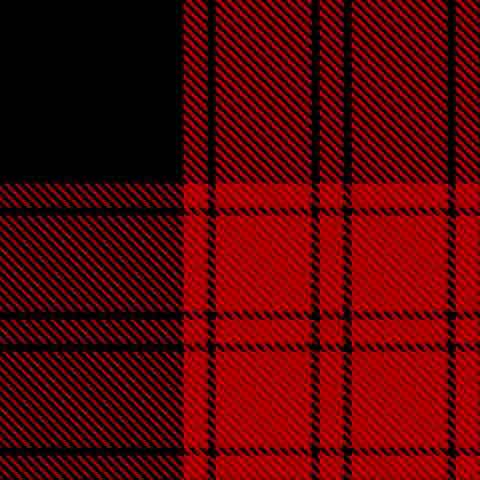Clan Ewing: Ewings, MacEwens and MacLachlans
From the late nineteenth century onwards, Ewings were usually grouped as a family within Clan MacLachlan and were entitled to wear MacLachlan tartan. This provision was considered to include MacEwens as well as Ewings and in 1992, Lord Lyon gave permission for Clan MacLachlan to list ‘MacEwens as a dependent group within Clan MacLachlan’ (letter of 13 July 1992). Many Ewings campaigned alongside MacEwens for independence in the belief that together they made up a single clan, as suggested in Robert S. T. MacEwen’s book Clan Ewen: Some Records of its History (1904). However, it became clear that in all but a few cases, Ewings and MacEwens have entirely different clan origins.
Although the Ewings were clearly a single family, they were now divided between separate clans; there were Ewings who identified with Clan MacLachlan, others who identified with Clan MacEwen, and others who still viewed Clan Ewing as a historic clan in its own right.
Lyon Court has always considered the Ewings to be a unique kinship group with all the hallmarks of a clan. Thus in 2001, Rothesay Herald, Sir Crispin Agnew BT QC wrote warning that if a joint Ewing-MacEwen clan were established, ‘one or other group would be disenfranchised’ and he advised that the Ewings should ‘consider whether it is appropriate to continue under the umbrella of the MacEwens and whether or not each name group should go its own way’ (letter of 14 August 2001).
The tradition of Ewing clanship had remained particularly strong in America, as is reflected in Elbert W. R. Ewing’s book Clan Ewing of Scotland (1922). Although Elbert Ewing theorized about Lowland origins, he also preserved oral traditions testifying to our Highland roots. In 1988, Rev. Ellsworth S. Ewing established a network of Ewings throughout the US under the name Clan Ewing in America, which developed to become the Ewing Family Association in 2008.
Also in 2008, UK writer and historian Thor Ewing began rigorously investigating the historical evidence. His research has confirmed that the Ewings are indeed a clan in their own right, with their own unique history, heraldry and traditions.
A joint MacEwen/Ewing Family Convention (or Derbhfine) was held on 6 June 2014, overseen by Marchmont Herald, Hon. Adam Bruce. At this meeting, Clan Ewing was represented by the Ewing Family Association and Clan MacEwen by the Clan Ewen Society; other interested clansfolk from Clan Ewing were also present. The two clans met in a spirit of fellowship, and nominated separate commanders. As the leading voice in historical research and in the campaign to restore our ancient clanship, writer and historian Thor Ewing was chosen as Commander of Clan Ewing. On 13 October 2014, Dr Joseph Morrow, Lord Lyon, confirmed John Thor Ewing as Commander of Clan Ewing. Thus, the independence and legitimacy of the Honourable Family of Clan Ewing is now officially recognized in Scottish law.
As a footnote to this account, it is beyond doubt that some of the descendants of our ancestral clan now go by surnames other than Ewing. Naming traditions were not fixed before the eighteenth century, and people named as Ewings in contemporary records would have been known to the Gaelic-speaking community as Mac Eoghainn. Some of our clan traditions were preserved by descendants of Walter MacEwen ‘of Luss’ whose ancestors may perhaps sometimes appear in early records under the Ewing name. In other cases, the name Ewing occurs in variant forms such as Ewin or Ewen, and is sometimes even confused with the name Young.
